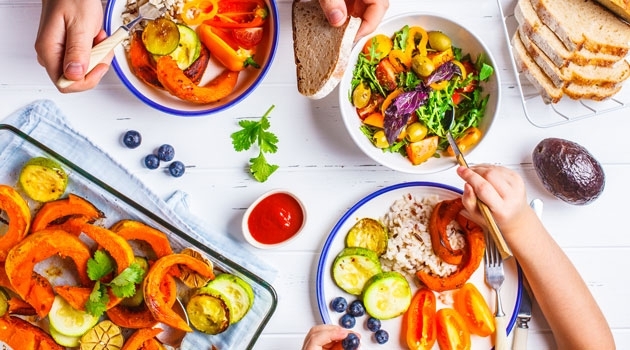No prohibitions: advice for parents on children and weight
Childhood obesity is becoming increasingly common and many parents are wrestling with the problem of how best to help their child. Paulina Nowicka, professor in food studies at Uppsala University, has written a book brimming with useful tips – such as avoiding prohibition and having great patience.
Uppsala University. Photo: Mikael Wallerstedt
After 20 years of research into childhood and adolescent obesity, Professor Nowicka has published Hälsovikt för ditt barn [A Healthy Weight for your Child], a popular science book aimed at parents.
“A great many concerned parents contact me with questions about weight. At the same time, we do have evidence-based sources, so I was keen to write a book based on science and proven experience.”
One common question is what one should do if a child puts on weight easily; conversely, another is what to do when a child has difficulty gaining weight. Others wonder how to react when their child constantly wants to eat. Is it possible to limit eating without the risk of precipitating an eating disorder?
Best to start early
Nowicka is quick to underline that there is no method that will suit all parents.
“The book is not a manual; rather, it is a collection of tips that might well work for your particular family. In my opinion, the best advice is to begin with small steps and not turn life upside down. Another tip is to avoid prohibition; for example, don’t ban sweets entirely, because then there will be a great deal of focus on sweets.”
In Sweden, between 10 and 20 per cent of children are overweight or obese and in some areas the figure is even higher. The more overweight a child is, the less likely it is that they will grow out of it. Research shows that it is best to start early if one wishes to make changes that lead to a healthier lifestyle.
“If a child is significantly overweight at a young age – as a three-year-old, for example – it is a good idea to make changes immediately. It will be good for the entire family, but especially for the little child.”
Black belt in patience
Reviewing what a child drinks will often go a long way, but even food may need to be varied. One challenge is that many children go through picky periods when they refuse to touch certain types of food, such as vegetables. According to Nowicka, it is important to persevere.
“In addition to parents being the greatest role model, it is, as I write in my book, important to have a ‘black belt in patience’. To expose, praise and encourage many times and in different ways. It may not taste good the first or second time, or the 28th time, but then the child will grow accustomed to the texture.”
This is the first time she has written a popular science book. The desire to write for a broader readership has grown over the years.
“As a researcher, I write scientific articles for a very narrow audience, statistics-heavy, very nuanced and limited to a certain number of words. In a medical paper one might have 3,000 words to play with, but in a book, I have 60,000 words.”
No desire to point the finger
At the urging of her publisher, Nowicka has written to parents rather than about them, and she has put additional work into chapters on sensitive subjects such as breastfeeding and weaning. It is important not to add to the burden of guilt on parents.
“There are an incredible number of books that point the finger and I didn’t want to add to that number. In that sense, I think the book may be perceived as slightly vague. I write that, while in some families this might work splendidly, as a parent you need to consider what works for your family. It’s a dialogue with parents, because there is no patented solution,” says Nowicka.
Were she to offer one unequivocal piece of advice that has the desired effect in 90 per cent of families, it would be this:
“Try to avoid having sweets on weekdays and, above all, don’t leave bags of sweets and crisps in full view. This will make things that much easier and you will avoid arguments.”
Annica Hulth

